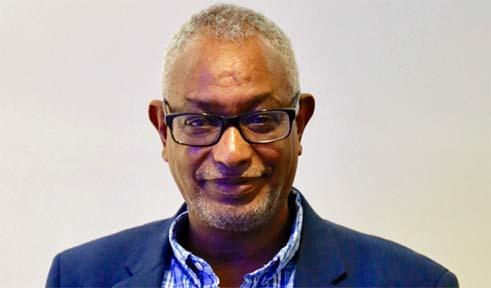Director
Dr. Ghirmai Negash
Yamada International House Room 113
56 E. Union St.
Athens, Ohio 45701
740-593-1832
negashg@ohio.edu
Ghirmai Negash is a professor of English & Postcolonial Literatures and the Director of the African Studies Program at Ohio University.
He is the founding-editor of the Modern African Writing Series, Ohio University Press; former founding-chair of the Department of Eritrean Languages and Literature, Asmara University; former President of PEN-Eritrea in exile; and past-President of the African Literature Association—ALA--(2020-21). He was also a member of the ALA Executive Council; and convener of the association’s 2011 annual conference in the Ohio University campus. Dr. Negash served in the Ohio University Faculty Senate, and as Vice-chair and Undergraduate Director of the Department of English, Ohio University.
Negash received his PhD from the University of Leiden, The Netherlands, in 1999. His research and teaching interests include postcolonial African and world literatures, critical theory, orature, and translation. His main writings focus on the literatures and cultures of the Horn of Africa and South Africa. A multilingual writer speaking several African and European languages, he publishes in English and his native language,Tigrinya.
He is the author and translator of several books of criticism, fiction, and poetry, including: A History of Tigrinya Literature in Eritrea (1999); The Freedom of the Writer (2016); Who Needs a Story? (edited and translated with Charles Cantalupo, 2016); At the Crossroads: Readings of the Postcolonial and the Global in African Literature and Visual Art (Lead Editor, with Andrea Frohne and Samuel Zadi, 2014), African Liberation Theology (co-written with Awet Woldemichael, 2018); and a translation of Gebreyesus Hailu’s novel The Conscript from Tigrinya into English (2012). Originally written in 1927 and published in 1950, this stunning novel provides readers with an African literary response to Italian colonialism in Eritrea and Libya. Negash’s translation of the novel has been acclaimed for its elegance and for opening new critical space for the study of indigenous-language literatures and their significance in and contribution to world literature.
His articles, translations, essays, interviews, and lectures have appeared in numerous academic and popular journals and books in print and online, including in Research in African Literatures, Biography, Imbizo, Teaching Life Writing Texts (MLA, 2008), Spazio Disponibile (Mousse Publishing & University of Buffalo Art Galleries, 2022), and https://vimeo.com/440427190.
He presently serves on many M.A. theses and PhD dissertation committees in the African Studies Program, the Department of English, and the Department of Interdisciplinary Arts, Ohio University.
